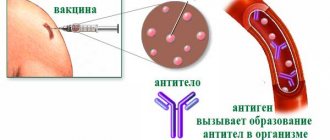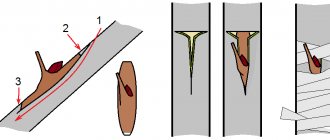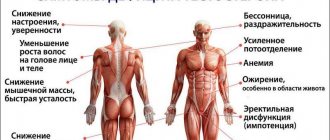A NOTE FOR PARENTS ABOUT VACCINATION AND THE RISKS TO CHILDREN’S HEALTH IF YOU REFUSE IT
REMINDER FOR PARENTS ABOUT VACCINATION
AND RISKS TO CHILDREN'S HEALTH WHEN REFUSED IT
What is vaccination and why are vaccinations needed?
Before the invention of vaccinations, infections and viruses were the main cause of high mortality among the world's population and short life expectancy. But for more than 200 years in the world there has been an effective way to protect humans and animals from a number of infectious and some viral diseases. The first vaccination against smallpox was made by the English doctor E. Jenner at the beginning of the 19th century. Since then, vaccination (immunization) has become the most effective way for humans to prevent dangerous diseases.
Vaccination (from the Latin vaccus - cow) is the administration of medication to prevent infection or reduce its manifestations and negative consequences. The material (antigen) can be used:
• live but weakened strains of microbes;
• killed (inactivated) microbes;
• parts of microbes, for example, proteins;
• synthetic components.
When a vaccine is administered, immunity to its components is developed, resulting in the formation of antibodies that live in the body. They are strictly individual for each pathogen; when they encounter it, they very quickly suppress it and prevent the disease from developing. Having coped with the task, the defenders do not disappear: they are ready to resist pests for a long time - several years, or even their whole lives. This is called immunity to a specific disease. Thus, it is possible to successfully combat the viruses of measles, rubella, polio, chickenpox, mumps, hepatitis B, rotaviruses and bacteria that cause tuberculosis, whooping cough, diphtheria, pneumococcus, Haemophilus influenzae, tetanus and other diseases.
Important
: When enough people are vaccinated, the transfer of viruses from one carrier to another is made more difficult and their spread is stopped. As a result, diseases bypass both those who are not vaccinated and those in whom the vaccination did not produce the desired effect. Thus, vaccination is especially effective if the vast majority of community members have completed it, be it a country, a city, or an individual kindergarten. Scientists have found that for a vaccine to function effectively, more than 95% of the population must be vaccinated against the disease.
Facts about vaccinations
According to statistics, over the last century, human life expectancy has increased, including thanks to vaccination. Its goal is to form specific immunity through the artificial creation of an infectious process, which in most cases is asymptomatic or mild.
Infectious diseases, from which vaccination actually protects, always accompany a person. They occur in different ways: mild, severe, with complications, lead to disability, and still occupy a leading place among the causes of death.
So what are the benefits of vaccinations?
It is absurd to deny the effectiveness of vaccination; the facts speak for themselves: if it were not for vaccinations against smallpox and polio, we would probably all be extinct by now. If a child has not received a tetanus vaccine and suddenly gets a trivial abrasion, what can be done if the mortality rate from tetanus is 90%? The only measure to avoid this dangerous disease is preventive immunization. However, despite these more than convincing data, many refuse vaccinations, moreover, they refuse to vaccinate their children, thereby exposing them to great risk.
If there were no vaccinations, we would be threatened with: measles: probability of death 1 case out of 100, disability 5 cases out of 100;
• whooping cough: the risk of complications from the respiratory and nervous systems is very high;
• diphtheria: probability of death 10 cases out of 100;
• polio: risk of severe disability;
• tuberculosis: long-term treatment, severe complications;
• mumps: possible development of infertility;
• rubella: women who were not ill in childhood or who were not vaccinated and become ill during pregnancy may give birth to a disabled or non-viable child;
• hepatitis B: high risk of severe liver damage (including cancer).
When is vaccination safest?
Many children receive a temporary exemption from vaccinations based on relative contraindications, for example: acute illness (acute respiratory infections, influenza, bronchitis), exacerbation of chronic pathology (allergy, dermatitis, renal failure) and upcoming travel. In each of these cases, the procedure is postponed until the appropriate moment of recovery, removal of an exacerbation, or return from a trip. All other reasons for refusing vaccination, including dysbacteriosis, prematurity, epilepsy and other conditions, are considered false.
Important
Remember that an individual approach is applied to each child. Before any vaccination, the doctor examines the child and decides whether it is possible. Vaccinations are prescribed in accordance with the vaccination calendar. However, some children, for example those born prematurely or with certain health conditions, may have medical contraindications to this vaccine. Vaccinations are not carried out during periods of acute or exacerbation of a chronic disease; they are postponed until recovery or remission. However, if the risk of infection is high (for example, after contact with a sick person), then some vaccines can be administered against the background of minor symptoms of acute or chronic illness.
Giving several vaccines on one day is not dangerous if these vaccines are combined with each other, and their appointment coincides with the vaccination calendar, as a result, immunity to several diseases is developed at once.
Important:
According to statistics, up to 60% of parents who do not vaccinate their children refer not to illness or exacerbation, but to their own conclusions, advice from relatives, religious aspects and other dubious circumstances.
Consequences of refusing vaccinations
If parents still decide not to vaccinate their child, then they should understand what the status of unvaccinated means for him. When a completely unprotected baby emerges into a world filled with germs and viruses, his mother and father are obliged to take additional measures to strengthen the immune system and strictly follow sanitary and hygienic rules, since any violation can lead to infection.
So:
• If there is a quarantine in a children's group due to any infection, then the unvaccinated baby does not have the right to visit it until the end of the incubation period. Under unfavorable circumstances, when one quarantine is replaced by another, a third, the baby may find himself in isolation for many months. And his parents will have to change their work schedule.
® Children who have received a dose of oral polio vaccine should not be in the environment of an unvaccinated child - in a development group, kindergarten, swimming pool, music school for 60 days. If a polio vaccination was given in a preschool or school institution, then unvaccinated children are sent to a two-month quarantine. Otherwise, they may become infected with this dangerous disease.
• The child may be prohibited from traveling to countries where, in accordance with international health regulations or international treaties of the Russian Federation, specific preventive vaccinations are required.
“ The baby should not pick up other people’s toys that have not been washed thoroughly beforehand, make friends who have not been tested for infection, and must also strictly observe all hygiene rules. It will not be surprising if all these prohibitions and restrictions have a bad effect on his psyche and character.
* In addition, there is a high risk of hepatitis B infection and severe liver disease. People think that their children cannot become infected, because they are raised in a completely prosperous family, do not use drugs, and do not come into contact with blood anywhere. This is a dangerous misconception. In kindergarten, a child can hit, fight, someone bites or scratches the baby, and this is contact with blood. Children infected with hepatitis almost always become chronically ill, which leads to serious long-term complications such as cirrhosis and liver cancer. All this leads to disability and early mortality.
Important:
In the future, an unvaccinated child may be denied employment in a job associated with a high risk of contracting infectious diseases. If this happens, then in order to realize his dream, the person will have to immediately get all the vaccinations that his parents protected him from.
Cases of refusal or delay of vaccination in children are becoming increasingly common. This is caused, first of all, by the main “disadvantage” of vaccination - the absence of the disease at the present time. When a child is sick, when he feels bad, then the parents are ready for anything, they look for a medicine, they understand that it is necessary. But when the child is healthy...
Parents must weigh the risks, often far-fetched, against the real consequences of refusing vaccinations; it is better to prevent than to try to treat.
According to the Federal Laws “On the Immunoprophylaxis of Infectious Diseases” and “On the Sanitary and Epidemiological Welfare of the Population” in force in Russia since 1998-1999, protecting yourself and your children from infectious diseases is not only the right, but also the responsibility of every person. The national calendar of preventive vaccinations is a regulatory legal act that establishes the timing and procedure for vaccinations.
However, there is no responsibility for refusing vaccinations; vaccination remains a purely voluntary matter. But, if an adult is responsible only for himself, then a parent who refuses to vaccinate his children seriously risks the health of his child. Exactly. The right of a child, like any citizen, is the right to be protected from illness. By protecting our child, we also protect our loved ones and other children. There is such a thing as a population effect. We live in a community, we are not isolated, the intensity of contacts, the speed of movement, and population density in cities are increasing. And the better we are protected ourselves, the better we protect those around us.
Infections are always nearby - this is important to remember. They “love” us, they will use any chance to show this “love”. And the only way to show our love for our children is to get vaccinated on time.
What you need to know about vaccinations
Vaccination, or, as it is also called, inoculation, is the process of introducing a vaccine into the body. Vaccines historically got their name from the Latin word vacca, meaning cow. In 1798, the English physician Jenner noticed that if the contents of a cow's pox were injected into a person's skin, he would not get smallpox.
Vaccines are drugs that help create artificial specific immunity acquired during the vaccination process and necessary to protect the body from a specific pathogen.
Vaccines are made through complex biochemical processes from microorganisms, their metabolic products or individual components of a microbial cell.
A vaccine preparation containing certain doses of the pathogen, once in the human body, collides with blood cells - lymphocytes, resulting in the formation of antibodies - special protective proteins that remain in the body for a certain period of time. This could be a year, five years or more. This is associated with the need for repeated vaccinations - revaccination, after which stable long-term immunity is formed. During a subsequent “meeting” with a pathogenic microorganism, antibodies recognize it and neutralize it, and the person does not get sick.
Before using the vaccine, they undergo the state registration procedure and the incoming laboratory quality control procedure in accordance with the current legislation of the Republic of Belarus. Monitoring of compliance with the “cold chain” (optimal temperature conditions for storing immunobiological medicines) during transportation, storage and use of vaccines is carried out. In the Republic of Belarus, monitoring of adverse reactions, including serious ones, is carried out. They are extremely rare: in the entire history of vaccination in our country, only isolated cases have been recorded.
The purpose of preventive vaccinations is to prevent the occurrence and spread of infectious diseases. Immunization is the process of forming the body's immunity to a particular infectious disease by administering a vaccine, thanks to which a person acquires immunity.
Calendar of scheduled vaccinations
In the Republic of Belarus, vaccination of the population is carried out as part of the provision of medical care to citizens and is carried out free of charge (fully funded by the state) on the basis of the National Calendar of Preventive Vaccinations and the List of Preventive Vaccinations for Epidemic Indications.
Routine vaccination according to the National Preventive Vaccination Calendar is carried out at certain periods of a person’s life and includes vaccination against 12 infectious diseases:
- viral hepatitis B;
- tuberculosis;
- diphtheria;
- tetanus;
- whooping cough;
- polio;
- measles, mumps, rubella;
- pneumococcal infection;
- Haemophilus influenzae infection type b (Hib infection);
- flu.
In addition to routine preventive vaccinations, immunization is carried out according to epidemic indications against 18 infections: rabies, brucellosis, chickenpox, viral hepatitis A, viral hepatitis B, diphtheria, yellow fever, tick-borne encephalitis, whooping cough, measles, rubella, leptospirosis, polio, anthrax, tetanus, tularemia, plague, mumps.
In the Republic of Belarus, preventive vaccinations for epidemic indications are carried out: to persons in contact with a patient suffering from an infectious disease; persons at risk of infection while carrying out professional activities; persons whose infection with pathogens of infectious diseases can lead to a complicated course of these diseases or death.
The procedure for vaccinations
The doctor must explain to the patient (parents, guardians, other legal representatives) the need for vaccination, and also inform:
- about the infection against which preventive vaccination is carried out,
- about the name of the vaccine,
- about the presence of contraindications and possible adverse reactions.
Before vaccination, the doctor must examine the patient, measure the temperature, respiratory rate, pulse, and ask whether he has any complaints about his health. This takes into account previous reactions to vaccinations, allergies to medications, foods, and existing chronic diseases.
If there are no contraindications to vaccination, the specialist will give written permission, which is recorded in the medical card and is a prerequisite for preventive vaccination.
After vaccination, you should not leave the medical facility for the first 30 minutes; sit near the office. This time will be enough for the child to calm down after the injection, and in case of an unexpected reaction to the vaccine, parents will be able to immediately receive medical help.
Contraindications to vaccination
Preventive vaccinations are given to individuals only during the absence of an acute or exacerbation of a chronic disease. Therefore, for the period until recovery, disappearance of symptoms, normalization of condition and recovery from the illness, the doctor will establish a temporary (long-term) contraindication for immunization. Its duration may vary, but is usually limited to one to three months.
A permanent contraindication to all vaccines is a complication following the administration of a previous dose of the drug. In particular, severe immediate allergic reactions that develop within 24 hours after vaccination, encephalitis (encephalopathy), seizures that occur in children with elevated body temperature.
The conclusion on the establishment, cancellation or extension of a permanent and long-term contraindication is made by the immunological commission, which will also determine the further tactics of vaccination for the patient.
Children who are not vaccinated on time due to medical contraindications are vaccinated according to an individual schedule, taking into account the recommendations of a pediatrician or other specialists.
Consultation for parents: “Why you need to get vaccinated.”
Consultation for parents “What you need to know about vaccinations”
Nikonova Natalya Vladimirovna
Consultation for parents “What you need to know about vaccinations”
«Graft
and the health of your baby"
Your baby is sent for the next vaccination
.You are tormented by questions:
· How will the baby tolerate this procedure?
vaccinations dangerous?
?
· And in general, what are vaccinations
?
What can you be vaccinated
?
I will try to answer your questions in this consultation
using the recommendations of medical professionals.
Vaccinations
are given exclusively against infectious diseases, the most severe, dangerous ones that can cause severe complications, as well as against those diseases that many people get sick at the same time:
·exclusively childhood diseases: whooping cough, diphtheria, rubella, measles, mumps, polio, etc.;
· "all ages"
infections: tuberculosis, viral hepatitis, tetanus, influenza; diseases of the region: tick-borne encephalitis;
· diseases of exotic countries (for tourists)
: viral hepatitis A, etc.
Purpose of vaccination
Formation of immunity (immunity)
to disease when a weakened or killed pathogen microbe is introduced into the body.
As a result, special substances (antibodies)
and cells are produced that can neutralize the real pathogen when infected.
If there were no vaccinations
Measles: probability of death: 1 case in 100, disability: 5 cases in 100.
·Whooping cough: high risk of brain inflammation.
·Polio: high risk of paralysis and disability.
· Tuberculosis: long-term treatment, severe complications.
Mumps (mumps)
: development of infertility.
·Rubella: birth of a disabled child.
·Hepatitis: high risk of severe liver damage, cancer.
· Influenza: Severe complications of the heart, brain, lungs, especially in the elderly, young children and people with chronic diseases.
Your rights
All required vaccinations
, included in the national calendar of preventive
vaccinations
are carried out free of charge.
The Immunoprophylaxis Law gives parents the right to decide for themselves
where to get
vaccinated
.
Every citizen or his legal representative ( parents )
have the right to receive complete and objective information from medical workers about the need for preventive
vaccinations
, the consequences of refusing them, and the possibility of post-vaccination complications.
Contraindications to vaccinations
· The vaccine is not administered a second time if, after the previous administration, the child had a temperature above 40 degrees, swelling at the injection site, or another unusual reaction.
· "Live"
vaccines
(measles, rubella, polio, mumps, tuberculosis)
are not administered for immunodeficiencies
(occurs in 1 child out of a million)
.
· The tuberculosis vaccine is not administered to children weighing less than 2000 grams.
· For progressive neurological diseases (with seizures)
whooping cough vaccine is not administered.
· Vaccination is not carried out during acute and chronic diseases ( vaccination is postponed until recovery)
.
· Measles and mumps are not diagnosed if you are allergic to egg whites or to antibiotics from the aminoglycoside group.
Alternative to vaccinations
Infections cannot be prevented by simply strengthening the body with hardening, vitamins, etc. An example of some unvaccinated children who did not get sick
, proves nothing. They just didn’t meet the sources of infection.
Scientists have clearly proven that a child’s immune system can resist many infections at the same time. Thanks to this, it is possible to create combined vaccines (whooping cough + tetanus + diphtheria or measles + rubella + mumps)
. The use of such vaccines reduces the number of injections.
In addition, thanks to modern technology and purification, modern vaccines contain fewer harmful substances. This significantly reduces the risk of adverse reactions.
Complications after vaccination
True complications are extremely rare. Usually we are talking about a reaction to a vaccine
redness and itching of the skin at the injection site and a slight short-term increase in body temperature.
These reactions have no health consequences. The vast majority of serious illnesses are “ordinary”
illnesses that coincide with vaccination.
Preparing for vaccination
For vaccination
no examinations are required, except for examination by a doctor and temperature measurement
(to exclude acute illness)
.
On the eve of vaccination,
you should not change your daily routine or diet. If you have allergies, you may be advised not to introduce new types of foods for less than a week.
Tell your doctor before vaccination
:
· about the presence of patients with immunodeficiency in the family,
about allergic reactions,
· about the previous administration of immunoglobulins, plasma or blood.
Parents
! Remember that the life of a child depends on your choice!
Protect your child - get vaccinated
!








